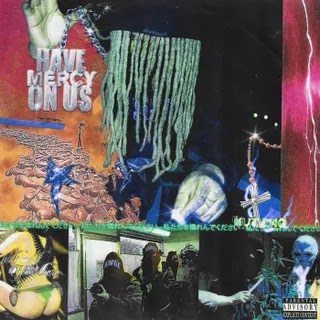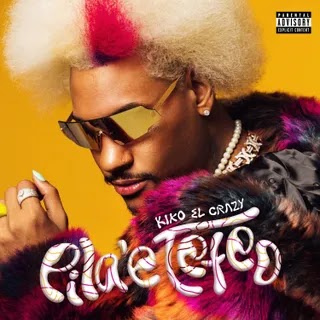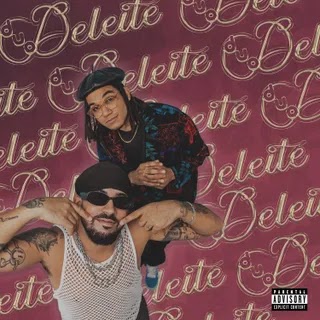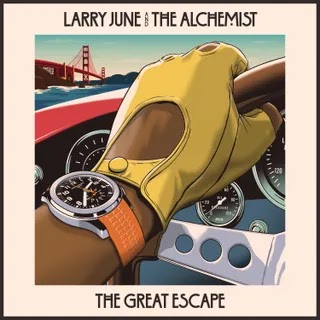The Baltimore rapper continues to earn his “Captain Hook” nickname on an album full of Murda Beatz’s sometimes too-spare production.
Every city with a buzzing rap scene can relate to Baltimore: Throughout the 2010s, as the city’s rap scene caught fire, tragedy after tragedy prevented artists from taking off the same way that their punch-in, flow-obsessed neighbors in the DMV did. The 23-year-old rising star Lor Scoota died in 2016 and local phenom Young Moose became the target of a Baltimore Police Department raid that resulted in him being imprisoned for eight months.
Despite all this, Baltimore’s rap scene is thriving today. The loudest (and most nasally) voice in the city belongs to Shordie Shordie, who rose to prominence as the designated hook-man of Peso Da Mafia before leaving the group to try his hand at a solo career. Shordie’s melody-first approach to songwriting made him stand out in his former group. Reading the lyrics to his 2018 breakout single, “Bitchuary,” you’d think the song sounded closer to a questionable argument you hear through thin walls than a tense, flirty back-and-forth, but that’s Shordie’s appeal: Any vulnerability he’s willing to show is always going to be cloaked with a hook you want to sing in the shower.
Memory Lane, Shordie’s follow-up to 2020’s >Music, is set on convincing you that he and “Nice for What” producer Murda Beatz have unrivaled chemistry—and for the most part, their ideas are in lockstep. The lone-producer project is new territory for Shordie, but he seems comfortable with Murda Beatz taking control. Early standout “Same Niggas” is the bread-and-butter that makes up the bulk of his discography. The subtext of every “Fuck you” he snarls is “And it don’t have to be this way.” This is just the first of several songs he spends licking his wounds—he’s a scorned lover, and he doesn’t care who knows it. “Keep your cheating to yourself and your phone, I don’t wanna cry,” he sings a song later on “Stuck in Between.”
Shordie continues to push himself as a writer, slowly becoming worthy of the “Captain Hook” nickname he adopted while with his former group. Even so, Memory Lane is a bit of a mixed bag; for every fleshed-out story of love and loss, there’s a song that’s all hook with a blasé verse added as an afterthought, like the Frank Ocean-flipping “Moral to the Story.” Shordie makes up for that miss with “LOVE,” where his cries for “L-O-V-E-E-E-E-E-E-E-E-E-E” and make-up sex are a welcome, yet unexpected callback to “Loveeeeeee Song.”
Murda’s skeletal production is effective at establishing simple feelings like sadness and lust. Superstars like Drake and Cardi B flood the space on Murda’s beats with their charisma. Shordie, on the other hand, needs beats that aid his storytelling. Too often on Memory Lane is he left to do the emotional heavy lifting with his singing. These synergistic problems are only magnified by the one rapper/one producer format; a producer with a tag as recognizable as Murda’s should be bringing Shordie closer to being a household name. Instead, Murda’s contributions feel closer to the guy who you have to force to turn in his part of a group project. The album’s closer, “Ride with Shordie,” with a beat made up of just string plucks and handclaps, whisks you away to a beachside bonfire, and leaves you wondering if there were other songs with more imaginative production culled from the final tracklist. Shordie’s no stranger to stretching his voice to add an extra layer of emotion to the track, but Murda’s beats sound like they’re waiting for a second act that never begins.
In 2019, Shordie told The Fader that it could sound like he was just doing “the easy part” with Peso Da Mafia, since he was focused on hooks. Going solo has let him flourish creatively; his hooks have only become a deadlier tool in his arsenal. At their simplest, Shordie’s love stories are lucid daydreams of what a situationship could’ve been, but when he puts it all together on Memory Lane, they’re storyboarded short films detailing the ups and downs of young love.
















0 comments:
Post a Comment